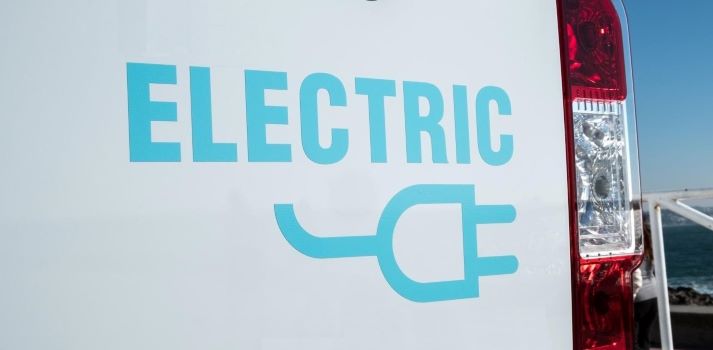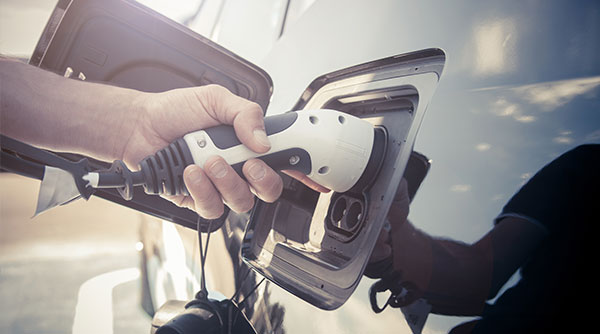In March, 115,713 cars with alternative drive systems (purely electric, hybrids with and without plugs and gas-powered) were newly registered in Germany. This is 10.6 percent less than in March last year, which, however, had three more working days than this year. In the first three months, a total of 304,725 new registrations with alternative drive technologies were recorded, an increase of 4.4% compared to the first quarter of 2023. The proportion of new registrations with alternative drive systems reached 43.9% in March, as in the first quarter. A year ago, this figure was 43.8% at the end of March and 48.5% for 2023 as a whole.
New registrations of purely battery electric passenger cars (BEV) fell significantly in March. 31,384 BEVs rolled onto the roads last month, a drop of 28.9% compared to March of the previous year. At just 11.9%, the share of newly registered BEVs in the overall market was even lower than the already weak market share in February. A total of 81,337 BEVs were newly registered in the first quarter, a decrease of 14.1% compared to the same quarter last year.
16,016 plug-in hybrids (PHEVs) were newly registered in March (-4.5 percent). Their share of total passenger car registrations was 6.1 percent. From January to March, PHEV registrations reached 44,985 units, an increase of 19.8% compared to the first quarter of 2023.
In total, electric vehicles (BEVs, plug-in hybrids and fuel cell vehicles) reached 47,421 new registrations in March, 22.2 percent below the registrations in March 2023. 126,356 electric vehicles were registered in the first quarter of 2024 (-4.5 percent compared to the first quarter of 2023).
The VDIK regularly updates the list of electric vehicles of its member companies. The VDIK electric list can be accessed here.
At 67,033 units, hybrid vehicles without plugs recorded the most new registrations of vehicles with alternative drive systems in March (-0.3 percent compared to March 2023). The share of new passenger car registrations in March was 25.4%. Registrations were split between 55,448 mild hybrids and 11,585 full hybrids. In the first quarter, hybrid vehicles without plugs increased by 11.3% to 173,927 new registrations (26,982 full hybrids/+12.6% and 146,945 mild hybrids/+11.1%).
In addition, 1,230 LPG passenger cars (+5.9%), 29 natural gas passenger cars (-79.7%) and 21 fuel cell passenger cars (-32.3%) were newly registered in March.
Among combustion vehicles, petrol cars accounted for 37.8% of new passenger car registrations in March with 99,753 (-3.4%) new registrations. 48,365 (-0.5 percent) newly registered diesel cars correspond to a share of 18.3 percent. Since the beginning of the year, 258,583 petrol cars (+4.0%) and 131,454 diesel cars (+4.1%) have been newly registered.
| March | January – March | |||||||
|---|---|---|---|---|---|---|---|---|
| +/- (%) | Share of total car market | +/- (%) | Share of total car market | |||||
| BEV | 31.384 | -28,9 | 11,9 | 81.337 | -14,1 | 11,7 | ||
| PHEV | 16.016 | -4,5 | 6,1 | 44.985 | 19,8 | 6,5 | ||
| FCEV | 21 | -32,3 | 0,0 | 34 | -46,9 | 0,0 | ||
| Electric Vehicles (total) | 47.421 | -22,2 | 18,0 | 126.356 | -4,5 | 18,2 | ||
| HEV including: |
67.033 | -0,3 | 25,4 | 173.927 | 11,3 | 25,0 | ||
| full hybrid | 11.585 | 12,1 | 4,4 | 26.982 | 12,6 | 3,9 | ||
| mild hybrid | 55.448 | -2,6 | 21,0 | 146.945 | 11,1 | 21,1 | ||
| CNG | 29 | -79,7 | 0,0 | 64 | -81,7 | 0,0 | ||
| LPG | 1.230 | 5,9 | 0,5 | 4.378 | 42,7 | 0,6 | ||
| Alternative Drivetrains (total) | 115.713 | -10,6 | 43,9 | 304.725 | 4,4 | 43,9 | ||
| Petrol | 99.753 | -3,4 | 37,8 | 258.583 | 4,0 | 37,2 | ||
| Diesel | 48.365 | -0,5 | 18,3 | 131.454 | 4,1 | 18,9 | ||
| Passenger car (total) | 263.844 | -6,2 | 694.785 | 4,2 | ||||
Glossary:
Electric vehicles: BEV, PHEV und FCEV
BEV, Batterieelektrisches Fahrzeug, engl: Battery Electric Vehicle
PHEV, Plug-In-Hybrid, engl: Plug-In Hybrid Electric Vehicle
FCEV, Brennstoffzellenfahrzeug / Wasserstofffahrzeug, engl.: Fuel Cell Electric Vehicle
Hybride, Hybrid ohne Stecker bzw. nicht aufladbar, engl.: Hybrid Electric Vehicle
CNG, Gasförmiges Erdgas, engl: Compressed Natural Gas
LPG, Flüssiggas bzw. Autogas, engl: Liquified Petroleum Gas
Models with a maximum e-motor output of 20 KW are classified as mild hybrids, while full hybrids have a maximum e-motor output of more than 20 KW.





